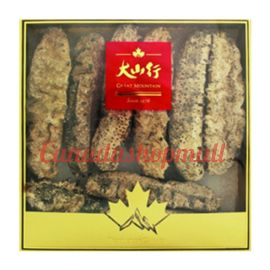We use cookies to make your experience better. To comply with the new e-Privacy directive, we need to ask for your consent to set the cookies. Learn more.
St Francis Herb Farm 4 Herb Formula Detoxification 50ml
$100.00
In stock
SKU
4 Herb Formula Detoxification 50ml
4 Herb Formula™
(PRODUCT NO. F_4HER)
Degenerative Conditions
Traditionally used in Herbal Medicine as an alterative to help remove accumulated waste products via the kidneys, skin, and mucous membranes.
NPN 80033280
A cleansing and strengthening tonic that supports the body in combating chronic degenerative disease. This is the original formula from Canadian nurse Rene Caisse.
Medicinal Ingredients: Burdock (Arctium lappa, root) 0.52 ml (1:1, QCE 520 mg), Sheep Sorrel (Rumex acetosella, herb top and root) 0.37 ml (1:4, QCE 925 mg), Slippery Elm (Ulmus rubra, inner stem bark) 0.09 ml (1:4.5, QCE 20 mg), Turkey Rhubarb (Rheum palmatum, root) 0.02 ml (1:4, QCE 5 mg)
Non-Medicinal Ingredients: Grain alcohol, Distilled water
Our herbs are Certified Organic/Organic/Wildcrafted.
QCE = Quantity Crude Equivalent
Adults: Take 1.5-2 ml (45-60 drops) 3 times daily in a little water on an empty stomach.
Cautions and Warnings: Consult a health care practitioner before use if you have diabetes. Consult a health care practitioner if symptoms worsen or persist.
Contraindications: Do not use: if you are pregnant or breastfeeding; if you have abdominal pain, diarrhea, kidney disorders, gallstones, haemorrhoids, irritable bowel conditions or bowel obstruction/inflammation, or a history of kidney stones; if you are allergic to plants of the Asteraceae (daisy) family.
Known Adverse Reactions: Discontinue use and consult a health care practitioner if abdominal cramps, spasms, and/or pain occur or if you experience diarrhea. Hypersensitivity reactions (e.g. allergy) have been known to occur, in which case discontinue use.
Store away from children. Do not use if seal is broken. Store at room temperature.
4 Herb Formula™ holds an important place as an alterative formula in support of
detoxification as well as the treatment of degenerative type conditions and the general
maintenance of good health. Alteratives are that class of herbal medicines that alter the
metabolic processes, enabling tissues to deal properly with nutrition and eliminative
functions, gradually ridding the body of waste tissue.
Both traditional use and modern studies confirm that the ingredients effectively
promote detoxification and maintain good health.The following is a brief explanation
of the individual herbs and the rationale for their use:
Burdock root: Burdock was popular among the Iroquois, who had many uses for this
herb, including its use as a blood medicine (purifier), among others.1
Burdock has been
highly valued in the Western herbal tradition for purifying the blood and was often
used for clearing the complexion and for general alterative use. Mrs. Maude Grieve
confirms burdock as “One of the best blood purifiers.”2
Eclectic physician Harvey
Wickes Felter, M.D. explains that burdock “is a potent but neglected alterative and
diuretic. It … favours the elimination of waste material, and secondarily proves tonic.”3
Herbalist David Hoffmann adds that, “In general, Burdock will move the body to a
state of integration and health…”4
Medieval German philosopher, herbalist and religious Hildegard of Bingen used
burdock to treat cancerous tumours.5
Burdock is an ingredient in both Harry Hoxsey’s
(Hoxsey Formula) and Nurse Renee Caisse’s (Essiac) herbal cancer treatments.
Based on a history of use as a folk remedy for abnormal growths, two scientists screened
burdock for antitumor activity, noting considerable effect.6
Japanese researchers also demonstrated potent antimutagenic (cancer preventive)
properties. The authors report that, “These results demonstrate that outstanding
desmutagenic effects were shown on both types of mutagen which manifest their
mutagenicity both with and without metabolic activation”. 7
Sheep Sorrel: Sheep sorrel acts to reduce inflammation, stimulate defences, cleanse and
strengthen the tissues and the whole body, while also enhancing phagocytic activity.
Sheep sorrel was a traditional medicine used by several First Nations tribes, including
the Aleut and Cherokee. The Mohegan chewed the fresh leaves as a stomach aid, while
the Squaxin ate the raw leaves to treat tuberculosis. At least 12 other tribes used the
leaves as food.8
J. Milton Welch, M.D. classes sheep sorrel as an alterative, calling it “a great cancer
remedy”.9
Fellow Eclectic physician John M. Scudder, M.D. adds that, “A tincture
of the Sorrel has a very decided action in those cases where there is a tendency to
degeneration of tissue. It makes no difference whether it is called syphilis, scrofula, or
cancer, the indication for use is the replacement of tissue with lower organizations …
Its use in the treatment of cancer has been quite extensive, and if we can believe the
reports given, it has proven fully as successful as any other remedy.”10
Slippery Elm: Slippery elm is a common botanical for feeding, soothing, and
strengthening mucous membranes. Slippery elm has high concentrations of fatty acids
and fatty acid esters that have cytostatic properties.
Write Your Own Review























